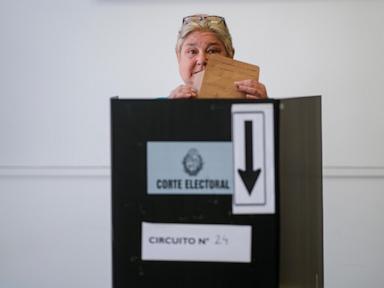ARTICLE AD BOX
Istanbul: Nada Hussein, coordinator of Palestinian and Arab world affairs at the Palestinian Campaign for the Academic and Cultural Boycott of Israel (a non-governmental organization), said that the global academic boycott of Israeli universities “is increasing day after day,” accusing them of “complicity in crimes committed against the Palestinian people.”
Hussein stressed that Israel’s universities are “an integral part of settler colonialism and the apartheid regime in the occupied Palestinian territories.”
She added that the Palestinian Campaign for the Academic and Cultural Boycott of Israel, based in the city of Ramallah, in the center of the occupied West Bank, began its activity in 2004, “as part of the boycott movement against Israel and the efforts made to break the siege on the Palestinians.”
The campaign aims to “prevent Israel from exploiting arts, culture, academia and sports to cover up its ongoing violations and crimes against the Palestinians.”
She explained that the campaign aims to “prevent Israel from exploiting arts, culture, academia and sports to cover up its ongoing violations and crimes against the Palestinians.”
She continued, “The movement of effective solidarity with the struggle of the Palestinian people to achieve freedom and justice is increasing throughout the world, with the increase in Israeli attacks on Gaza.” Thousands of scientists, academics and scientific institutions expressed unprecedented solidarity with the cause of the Palestinian people.”
Israel's isolation internationally
Nada Hussein stressed that “Israel is subject to an international trial, before the International Court of Justice, for committing genocide crimes against 2.3 million Palestinians in Gaza.”
She continued: The boycott is not only a moral obligation, but a military embargo must be imposed against Israel in all countries that have signed the Convention on the Prevention and Punishment of Genocide (of 1948), in addition to international isolation in academic circles, culture, arts and sports.
She added that academic groups around the world supported the academic boycott, by sending open letters and exerting pressure for a ceasefire in the Palestinian territories, opening border crossings to deliver humanitarian aid to the people of Gaza, and taking measures to lift the blockade.
As a result of the war and Israeli restrictions, the residents of the Gaza Strip, especially in the Gaza and North governorates, are in the grips of famine, which has already claimed the lives of children, in light of a severe scarcity of food, water, medicine and fuel supplies, with the displacement of about two million residents of the Strip, which has been besieged by Israel for 17 years. years.
Hussein added that the Royal Melbourne Institute at the University of Technology in Australia announced its cancellation of a contract with the Israeli arms manufacturing company (Elbit Systems), and this decision comes after more than a year of pressure campaign faced by the institute, based on a call from the Union of Palestinian University Professors and Employees Unions.
She added that four Norwegian universities recently ended their cooperation with Israeli universities, and the University of Oslo froze student and academic exchange agreements with the Israeli University of Haifa, and decided not to sign a cooperation agreement with any Israeli university in the future.
Bergen University of Architecture in Norway also terminated two cooperation agreements with the Israeli Bezalel Academy of Arts due to its ties to the occupation army and its role in designing the military uniforms and equipment it uses, Hussein added.
It also reported that the University of Southeastern Norway had terminated cooperation agreements with the University of Haifa and Hadassah Academic College in Israel, and based its decision on the attacks launched by Israel on Gaza, the tragic humanitarian situation experienced by the residents of the Strip, and Israel’s disregard for the orders of the International Court of Justice.
On January 26, the court, the highest judicial body in the United Nations, ordered Israel to take measures to prevent acts of “genocide” against the Palestinians and improve the humanitarian situation in Gaza, in a lawsuit filed by South Africa.
Settlement and apartheid
According to Nada Hussein, the Palestinian Campaign for the Academic and Cultural Boycott of Israel called on the academic community around the world to boycott Israeli universities because they are “an integral part of settler colonialism and the apartheid system.”
Nada Hussein: Tel Aviv University developed the suburb doctrine, which means the Israeli army’s use of excessive force against civilians and infrastructure.
She continued, “Tel Aviv University developed the Dahiya doctrine, referring to the southern suburb area (in the Lebanese capital, Beirut), and meaning the Israeli army’s use of excessive force against civilians and infrastructure.”
She added: “The Technion University implemented plans and works for the apartheid wall (in the occupied West Bank) and surveillance technology in cooperation with Elbit, one of the largest defense industry companies in Israel.”
Nada stressed that “Israeli universities are complicit in the crimes committed against the Palestinian people because they play an essential role in developing Israeli military and security knowledge.”
She pointed out that “the Israeli Ariel University was established on land owned by generations of Palestinian families in the occupied West Bank, and it launched educational programs in cooperation with the Hebrew University in Jerusalem, which in turn was also established on Palestinian land.”
Destruction of the education sector
Nada stressed “the possibility of imposing comprehensive international isolation on Israel by putting pressure on it at all sectors and levels.”
She added, “Israel’s violent and deliberate attacks on the education sector in Palestine have continued since 1948.”
“Schools and universities in Palestine have been closed for a long time, and Israeli forces systematically deprive Palestinian students and academics of their right to access educational services and their right to life, by deliberately targeting students, who are subjected to arrest, killing, or serious injury,” Nada explained. Hussein.
She concluded, “The Gaza Strip is subjected to a war of cultural genocide and systematic destruction of the education sector, and (Israeli) bombs destroyed 70 percent of the universities and schools in Gaza.”
.png)
 8 months ago
7
8 months ago
7









 English (US)
English (US)